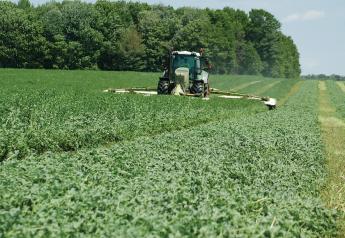Groceries Pull Colorado Cantaloupes as Listeria Cases Rise

Colorado's major grocery chains pulled Rocky Ford cantaloupes off their shelves in response to a widening listeria outbreak tied to consumption of one of the state's most popular crops.
King Soopers, Safeway, Albertson's and Whole Foods started the voluntary action shortly after the Colorado Department of Public Health and Environment reported Monday that most of Colorado's 13 cases, as well as a handful of others in Nebraska, Texas and Oklahoma, have been linked to Rocky Ford cantaloupes.
"We have made a voluntary recall of Rocky Ford, Colorado, cantaloupes, just out of an abundance of concern for customers and safety," said Kelli McGannon, spokeswoman for King Soopers, which started pulling the melons from its 142 Colorado stores Monday evening.
As the stores took action, the medical director of El Paso County Public Health reported that the county has had two more cases of listeriosis, bringing the total to four since mid-August.
That gives El Paso County the dubious distinction of having the highest number of listeria cases in the state, said Dr. Bernadette Albanese.
In reporting the new cases, she also stepped up her warning to people at high risk of becoming seriously ill from the foodborne illness: those 60 and older, pregnant women and people with compromised immune systems.
"We want to make the message crystal-clear: If you have purchased Rocky Ford cantaloupe, throw it away," Albanese said. "If you had the cantaloupe in your refrigerator before you threw it away, clean your refrigerator."
The first reports of listeriosis surfaced in mid-August. Since then, at least 13 Coloradans have been sickened, and two have died, including an El Paso County resident. Most of the Colorado cases have been linked to the melons, and the others could be tied in after further investigation.
The U.S. Centers for Disease Control and Prevention, which is overseeing the investigation, also reports one case each in Nebraska and Oklahoma, and two in Texas, all tied to the same strain of listeria monocytogenes.
In New Mexico, nine cases of listeriosis have been reported since Aug. 20, with three resulting in death. All the patients had eaten cantaloupe, according to the New Mexico Department of Health, but further testing is being done to see if they're part of the same outbreak.
The two new cases in El Paso County, which required hospitalizations, have not officially been linked to cantaloupe consumption, Albanese said. But she's concerned enough to redouble her message to high-risk groups, especially the elderly.
"We just feel like we have a retiree population here - a lot of older folks - and obviously, we are right now the county with the most cases, and feel like we need to be doing more," Albanese said. "Not all have lab-confirmed, but we're concerned."
People have been bringing cantaloupes to the health department for testing, but Albanese said it's a wasted trip.
"The health department is not testing cantaloupes for random people," she said. "And if you have concerns about having eaten Rocky Ford cantaloupe and you're not feeling well, contact your health provider."
The county health department recommends getting rid of melons by wrapping them in a plastic bag, closing it, and placing it in a sealed trash can. Once the melons are thrown away, she said, people need to wash their hands with soap, and clean refrigerators and other surfaces that have come in contact with the melon with a solution of one part bleach to 10 parts water, or a mix of mild dishwashing detergent and water.
"This is all about prevention," Albanese said.
ABOUT LISTERIA
Listeria monocytogenes is a bacterium found in soil and water. Animals can carry it and contaminate animal products, such as meats and dairy products. If the bacteria get into food processing factories, they can live there for years, according to the U.S. Centers for Disease Control and Prevention. Most healthy adults will not be affected by the bacteria, or will experience mild symptoms.
People in the high-risk groups will typically get diarrhea or other gastrointestinal symptoms, followed by a fever and muscle aches. The bacteria spreads from the intestines to the blood stream or other body sites. Pregnant women usually get mild, flu-like symptoms, but the infection can cause a miscarriage, stillbirth or premature delivery, and severely sicken the newborn.
Aside from avoiding Rocky Ford cantaloupe, high-risk groups are also warned against eating the following foods: hot dogs and deli meats, unless heated to 165 degrees; refrigerated pate or meat spreads; refrigerated smoked seafood; and soft cheeses such as queso fresco and brie, unless they are made with pasteurized milk. And wash fruits and vegetables thoroughly before eating.







